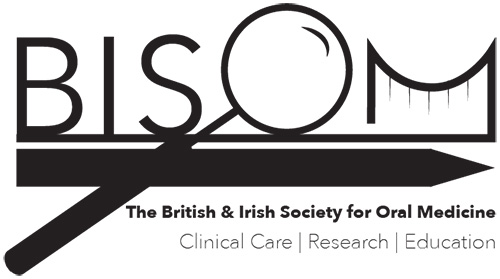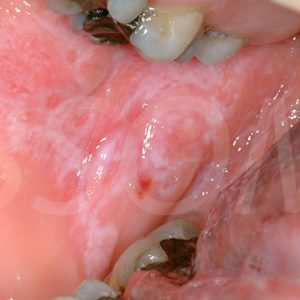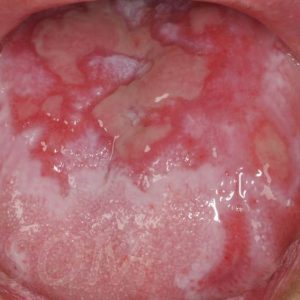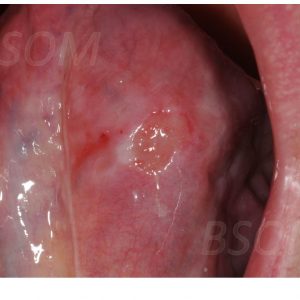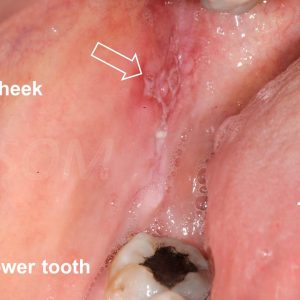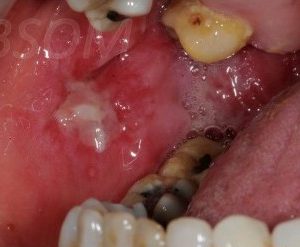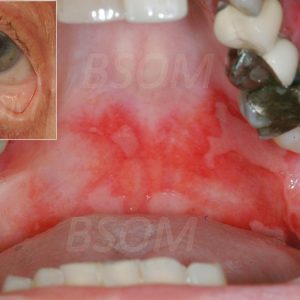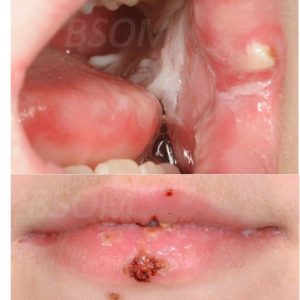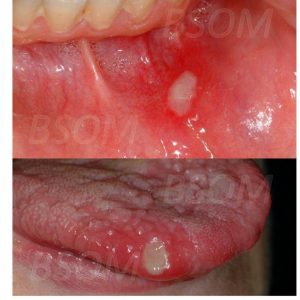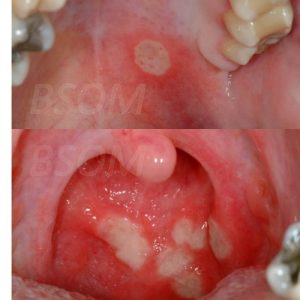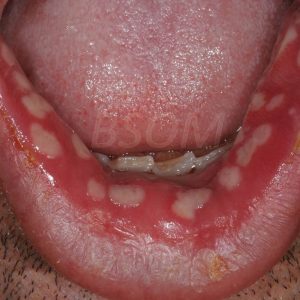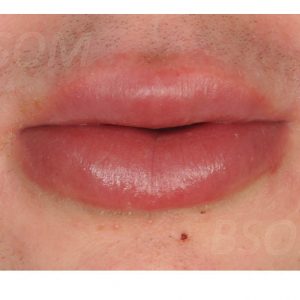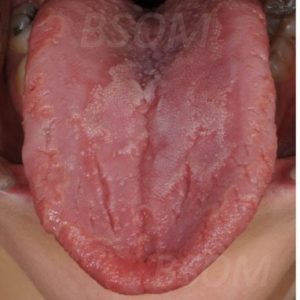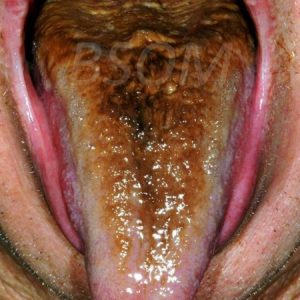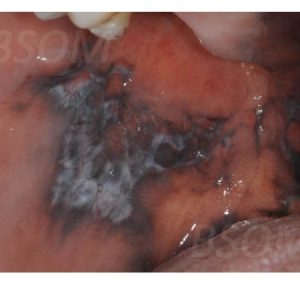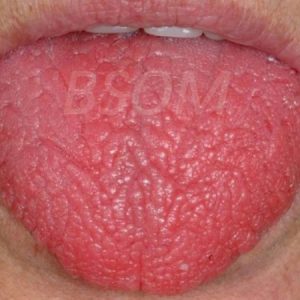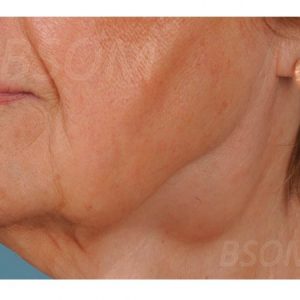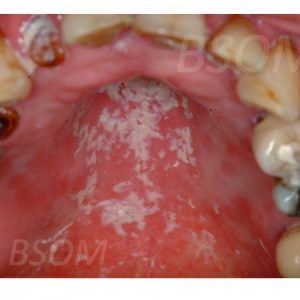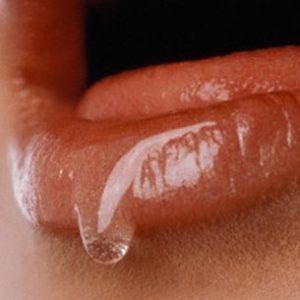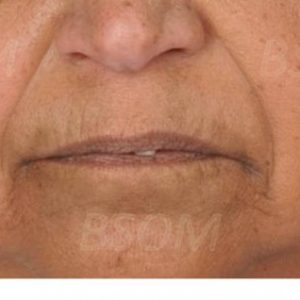Clinical Care
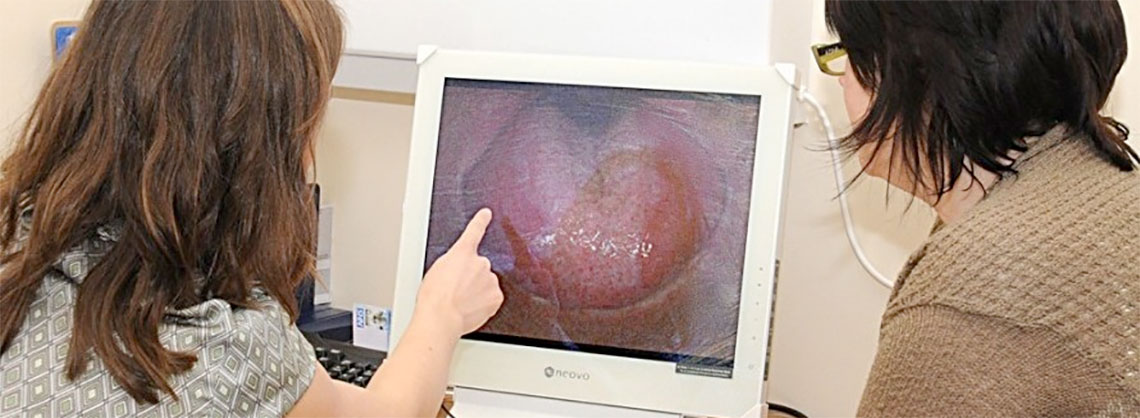
Oral Medicine is a specialist clinical area of care for treating head and neck medical diseases. In some instances, mouth symptoms and signs reflect problems only in the mouth. However, in some cases mouth symptoms can suggest a connection with disease or problems in other parts of the body and it is the Oral Medicine specialist who can best decide what tests or investigations are needed in these situations.
Conditions managed in Oral Medicine are often chronic and may have a significant psychological, as well as physical impact on the patient’s quality of life.
Some of these conditions also involve other diseases in the body, and in these cases the oral medicine specialist works as part of a multi-disciplinary patient care team.
Oral Soft Tissue Conditions
The oral soft tissues include the lining of the mouth and the full thickness of the lips and cheeks.
Many conditions can cause changes to the lining of the mouth. These may have a very detrimental impact on quality of life and affect activities of day-to-day living such as speaking, eating or tooth-brushing. There may be pain or worry about the underlying causes and what the future may hold. Some changes are associated with serious and potentially life-threatening conditions where early recognition and management are important.
The Society has lobbied with partner organisations to raise awareness of the need for early mouth cancer detection and prevention.
Examples of conditions affecting the lining of the mouth that fall within the scope of specialist Oral Medicine clinical practice include:
- White, red, blistering or ulcerated lesions
- Soft tissue swellings
- Pigmented lesions
- Fibrosis or stiffening
Below are some case examples of oral soft tissues conditions that give an indication of the breadth of conditions and issues that may be involved.
Salivary Gland Conditions
Saliva is formed in the large (major) salivary glands, but also by hundreds of small (minor) salivary glands located throughout the lining of the mouth. Saliva is important for a healthy mouth.
Many conditions can cause changes to the salivary glands. These may have a very detrimental impact on quality of life and affect activities of day-to-day living such as speaking, eating or tooth-brushing. There may be discomfort or worry about the underlying causes and what the future may hold. Some changes are associated with serious and potentially life-threatening conditions where early recognition and management are important.
Examples of conditions affecting the salivary glands that fall within the scope of specialist Oral Medicine clinical practice include:
- Dry mouth
- Too much saliva
- Salivary gland swelling
Below are some case examples of salivary gland conditions that give an indication of the breadth of conditions and issues that may be involved.
Chronic Pain & Altered Sensations
The mouth and associated facial tissues include many nerves. These include those with special functions such as taste and swallowing and others that sense pain as part of the protection against damaging situations.
Many conditions can cause pain or other altered sensations. These may have a very detrimental impact on quality of life and affect activities of day-to-day living such as speaking, eating or tooth-brushing. There may be discomfort or worry about the underlying causes and what the future may hold. Some changes are associated with serious and potentially life-threatening conditions where early recognition and management are important.
Examples of conditions affecting the nerves of the mouth and face that fall within the scope of specialist Oral Medicine clinical practice include:
- Burning or scolded sensations
- Electric-shock like pains
- Dull aching pains
- Altered taste
Below are some case examples of chronic pain and altered sensations that give an indication of the breadth of conditions and issues that may be involved.
Oral Medicine Beyond the Mouth
The mouth is the part of the body that is the top end of the gut and helps transport air to and from the lungs. It is the only part of the body where hard tissues (teeth) naturally come out of soft tissues. The jaw joints are unusual as the left and right joints move together and not separately. With roles in taste, eating, speech and social interactions, the mouth is central to many activities of day-to-day living.
With this complexity, it is perhaps not surprising that problems that present in the mouth may also involve other parts of the body. Sometimes this is obvious. On other occasions it isn’t. Specialists in Oral Medicine are trained to recognise where there may be involvement beyond the mouth. Close multi-disciplinary working with many other specialties aims to ensure that each patient gets the best treatment for their particular situation.
Multi-Disciplinary Clinical Care
The clinical scope of Oral Medicine is extremely broad and there is close liaison with other specialists in dentistry and medicine. Illustrative examples are given below, but do not represent a comprehensive list.
| White and red patches in the mouth where there is either oral dysplasia or cancer | Oral & Maxillofacial Surgery |
| Skin diseases with oral manifestations such as lichen planus, lupus erythematosus, hypersensitivity reactions, erythema multiforme, pemphigoid and pemphigus | Dermatology |
| Diseases that involve the mouth and the eyes such as Sjögren’s Syndrome, pemphigoid, erythema multiforme and Behçet’s disease | Ophthalmology |
| Diseases that involve the mouth and the musculoskeletal system such as Sjögren’s Syndrome, lupus erythematosis and Behçet’s disease | Rheumatology |
| Diseases that involve the mouth and other parts of the gastrointestinal tract such as Crohn’s disease, coeliac disease and nutritional deficiency states | Gastroenterology |
| Diseases that affect children and young adults such as orofacial granulomatosis, viral infections and congenital immunodeficiencies | Paediatrics |
| Oral manifestations of infectious diseases such as viral diseases (Human Herpes Viruses & HIV), tuberculosis and syphilis | Infectious diseases & Sexual Health Medicine |
| A diverse range of facial pains and altered sensations including burning mouth syndrome trigeminal neuralgia, atypical facial pain and atypical odontalgia | Restorative Dentistry, Neurology, Pain Team, Liaison Psychiatry & Clinical Psychology |
| Lesions due to adverse side effects of drugs, materials including those used in dentistry, or other treatments such as bone marrow transplant | Clinical Pharmacology Clinical Immunology, Restorative Dentistry& Cancer Services |
| Conditions where help is required with coping with the chronic, unremitting nature of the symptoms | Liaison Psychiatry & Clinical Psychology |
Close working with dental colleagues allows oral health to be optimised and reduce the risks of premature tooth loss through either dental caries (decay) or periodontal (gum) disease.
Clinical management may be complex and involve use of specialist drugs that require close monitoring.
